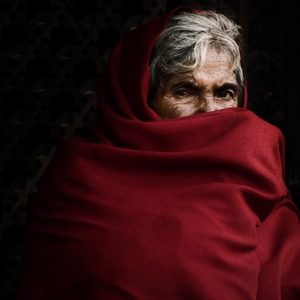KATHMANDU – The National Leprosy Trust (NLT) is a Christian faith-based organization based in the UK that ministers to people with Hansen’s disease in Nepal.
 The NLT was founded by Eileen Lodge in 1972 after she had spent time working as a nurse in the country. What was once a modest endeavor, the National Leprosy Trust now has its national headquarters in Kathmandu and a world-class leprosy hospital in Lalgadh, about a five-hour drive southeast of the capital city.
The NLT was founded by Eileen Lodge in 1972 after she had spent time working as a nurse in the country. What was once a modest endeavor, the National Leprosy Trust now has its national headquarters in Kathmandu and a world-class leprosy hospital in Lalgadh, about a five-hour drive southeast of the capital city.
National Leprosy Trust in Kathmandu
An indigenous staff leads the NLT headquarters. The office is conveniently located so as to have access to government officials and proximity that allows for a continually growing, friendly relationship. That healthy relationship has benefitted the NLT in many ways, including licensing, permitting, donation of public lands, and support from authorities that combine to help the ministry function relatively headache-free.
The primary purpose of the Kathmandu headquarters, however, is to create and sustain income-generating projects and social services for poverty-stricken families. A large number of the employees are people whose lives have been affected by leprosy and other disabilities.
Khola is a project akin to a sheltered workshop. Its employees are skilled but marginalized craft workers. Khola produces high-quality leather, felt, and batik items.
The Lydia project includes training and employment for disadvantaged women. This project primarily produces a wide range of fabric items and greeting cards. Lydia Trading, Ltd, provides vertical integration for the goods produced by Khola as the NLT’s export entity. Profits from the sale of products in countries like the UK, Japan, and the U.S. are donated to the National Leprosy Trust to support additional social welfare endeavors.
National Leprosy Trust in Lalgadh
The Lalgadh Leprosy Hospital and Services Center (LLHSC) is the only major leprosy treatment center in southeast Nepal, where the occurrence of leprosy in the country is most concentrated.
The LLHSC serves as many as 87,000 patients annually. That number includes 3,500 who sought treatment at the hospital’s satellite clinics. The hospital treats about 35% of newly recorded leprosy cases, making it one of the busiest leprosy treatment centers in the world. The hospital employs six doctors, five of whom are native Nepalese. There are more than 100 nurses and paramedical workers at the facility.
Leprosy patients are never charged for treatment or medications. Visitors seeking general services are asked to cover the basic costs for their case. However, because many are so impoverished that they cannot afford even that much, the ministry often subsidizes their treatment from funds that have been donated for that purpose.
The Lord turned the heart of one nurse toward people suffering from leprosy in Nepal. She “pioneered leprosy work from the western region of Nepal across to the eastern region, and her legacy is those works which will go on changing lives for many years to come.” And so, the work goes on.
Read more news on Faith Based Organizations, Leprosy and World Missions on Missions Box.
Sources:
- National Leprosy Trust, Official Website
- Mission Minders, National Leprosy Trust




